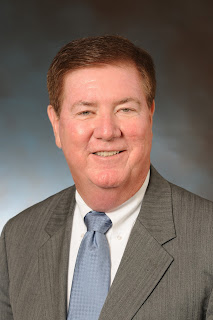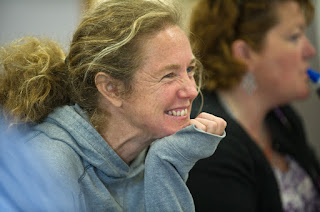Stark State College in North Canton, Ohio, and Union Institute & University, headquartered in Cincinnati, Ohio, have created a relationship that benefits students seeking bachelor’s degrees. The two Ohio colleges have formed an articulation agreement that will offer students a seamless transition from Stark State College’s associate's degree program into Union Institute & University’s bachelor's degree program.
“This is a great collaboration between two wonderful institutions that allows Stark State College students who earn their Associate of Arts or Associate of Science degree to continue to climb the degree ladder and to become even more viable in our ever-changing economy,” said Para M. Jones, Ph.D., president of Stark State College.
The new articulation agreement is structured around a “3+1” model, allowing Stark State students who have earned their associate’s degree to take a third year through Stark State at Stark State tuition rates. The fourth year is then taken online through Union Institute & University and upon completion; the student will earn a Union Institute & University bachelor’s degree in one of six majors. Bachelor’s programs in business administration, business management, criminal justice management, early childhood studies, emergency services management, and leadership are available as part of the articulation agreement.
Union Institute & University has, for nearly 50 years, served thousands of students who have completed their associate's degree and seek flexible solutions to continue their education to better position them in the job market. Union has extensive transfer credit and tuition agreements with universities, organizations, and institutions across the country. Stark State College students can advance from their two-year program into the bachelor’s degree program and transfer their previously earned credit hours. Students can complete their bachelor's degrees via Union Institute & University’s convenient online courses and accelerate their completion time when possible. This allows Stark State students to remain in the Northeast Ohio community while earning a bachelor’s degree from an accredited and reputable university.
“We are very excited about this new partnership with Stark State College. Union’s academic programs are designed for busy adults who, like many Stark State students, may not have the time for a traditional classroom schedule due to job, family, or community commitments. We look forward to welcoming Stark State students, serving them as they complete their bachelor’s degrees, and providing them with the flexibility they need and the attention they deserve,” said Dr. Roger H. Sublett, president of Union Institute & University.
Stark State College offers more than 230 associate degrees, options, one-year and career enhancement certificates in business and entrepreneurial studies; education and human services; engineering, industrial, and emerging technologies; health sciences; information technology; liberal arts; mathematics; and sciences. Associate of Arts, Associate of Science, Associate of Applied Science, Associate of Applied Business, and Associate of Technical Studies degrees are offered.
Union Institute & University is a non-profit, accredited, private university specializing in adult and distance education since 1964. Union strives to engage, enlighten, and empower students in a lifetime of learning and service. The university’s transformational and socially relevant programs promote creative and critical thinking, and connect scholarship with real-world practice. Flexible online classes, brief residencies, classroom experiences, and hybrid models of instruction lead to undergraduate, masters, and doctoral degrees. Union graduates, including 14 college presidents, leaders in the public, private, and non-profit sectors, members of the United States Congress, and the first female prime minister of Jamaica, promote Union’s legacy of utilizing education to transform lives and communities.




